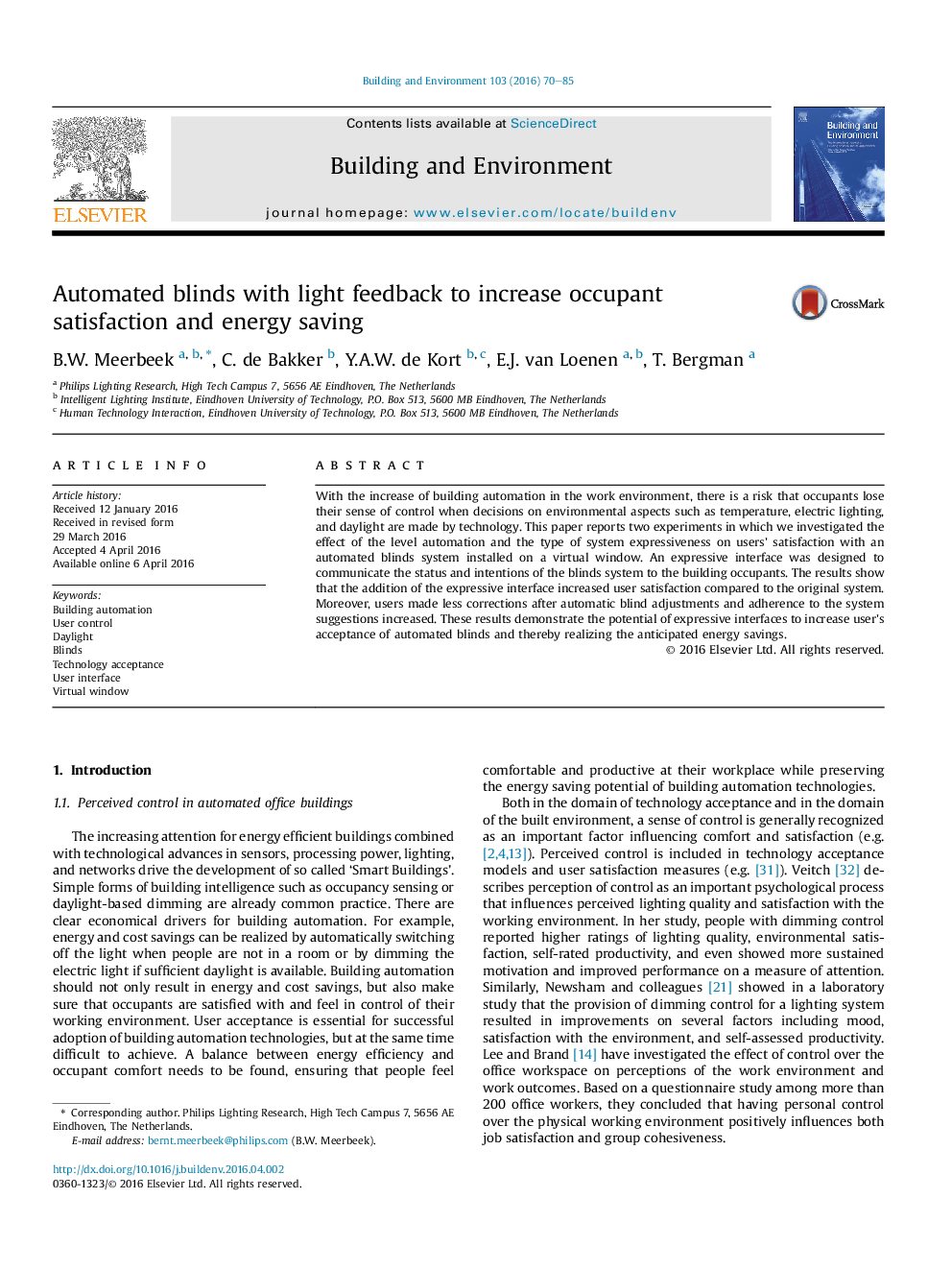| Article ID | Journal | Published Year | Pages | File Type |
|---|---|---|---|---|
| 6699200 | Building and Environment | 2016 | 16 Pages |
Abstract
With the increase of building automation in the work environment, there is a risk that occupants lose their sense of control when decisions on environmental aspects such as temperature, electric lighting, and daylight are made by technology. This paper reports two experiments in which we investigated the effect of the level automation and the type of system expressiveness on users' satisfaction with an automated blinds system installed on a virtual window. An expressive interface was designed to communicate the status and intentions of the blinds system to the building occupants. The results show that the addition of the expressive interface increased user satisfaction compared to the original system. Moreover, users made less corrections after automatic blind adjustments and adherence to the system suggestions increased. These results demonstrate the potential of expressive interfaces to increase user's acceptance of automated blinds and thereby realizing the anticipated energy savings.
Related Topics
Physical Sciences and Engineering
Energy
Renewable Energy, Sustainability and the Environment
Authors
B.W. Meerbeek, C. de Bakker, Y.A.W. de Kort, E.J. van Loenen, T. Bergman,
